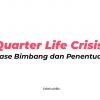I.Introduction
Economy run as dejavu. There is a time that it raise and in other time it goes down. It is well known that economy had the worst face in 1929. named it as “The Great Depression.” When the crisis already solved, economy enjoy the long golden era. Unfortunately, after almost 80 years, in 2008 economy experienced crisis again. As the Great Depression, 2008 economic crisis established battle among the economist as well.
This article offers not only the causes of crisis but also who and how the economists faced this crisis. Then what the new theories or models rose as a result of economists discussion. To make it clear and fair, it uses a comparative historical approach.
This paper reviews the 2008 economic crisis by using two articles, firstis “What Went Wrong with Economics?” from The Economist which published on July 16th, 2009 and the second is “How did Economists Get it So Wrong?” written by Paul Krugman and published by New York Times on Sept 2nd, 2009.
II.Review
In general, the two articles agree that crisis causes of monetary side then getting worst by wrong treatment. Before the crisis, many banks and shadow banks made similar assumptions. They believed they could always roll over their short-term debts or sell their mortgage-backed securities, if the need arose. But the real world run in another around. The financial crisis made a mockery of both assumptions. Funds dried up, and markets thinned out. In his anatomy of the crisis Mr. Brunnermeier shows how both of these constraints fed on each other, producing a “liquidity spiral”.
Where were the economists? That question comes up to our mind. It is not the first time that the world faces the crisis. It should be not happened. Actually, that’s also the problem for the crisis. The economists were busy against one model to another. They were too cavalier about what economy was having. It divided them in two groups. Financial Economists and macroeconomists_it also split to two camps, the purist (freshwater) who believed the classical theory and the pragmatists (saltwater) who followed Keynes theory.
Their noisy might not solve the crisis. Economist missed the origins of the crisis; failed to appreciate its worst symptoms; and cannot now agree about the cure. Macroeconomists also misread the danger of the financial system to break as the housing bubble impact.
Few economists saw that crisis coming, but failed to predict the field’s problems. More important was the profession’s blindness to the very possibility of catastrophic failures in a market economy. During the golden years, financial economists came to believe that markets were inherently stable — indeed, that stocks and other assets were always priced just right. There was nothing in the prevailing models suggesting the possibility of the kind of collapse that happened in 2008.
III.Conclusion
Both studies inform how and why the 2008 crisis come up. It began as the monetary problem. It was the mortgage deivatives market. Then monetary policy couldn’t even more drove the crisis.
The housing bubble attacked the market, and macroeconomist did not expect that become worst, broke the financial system. Furthermore, it treated by routine monetary policy and policy makers were busy discussing on their models not how to solve the crisis.
It brings 3 important caveats : that macro and financial economists helped cause the crisis, that they failed to spot it, and that they have no idea how to fix it. In other words, economists misread the economy on the way up, misread it on the way down and now mistake the right way out.








